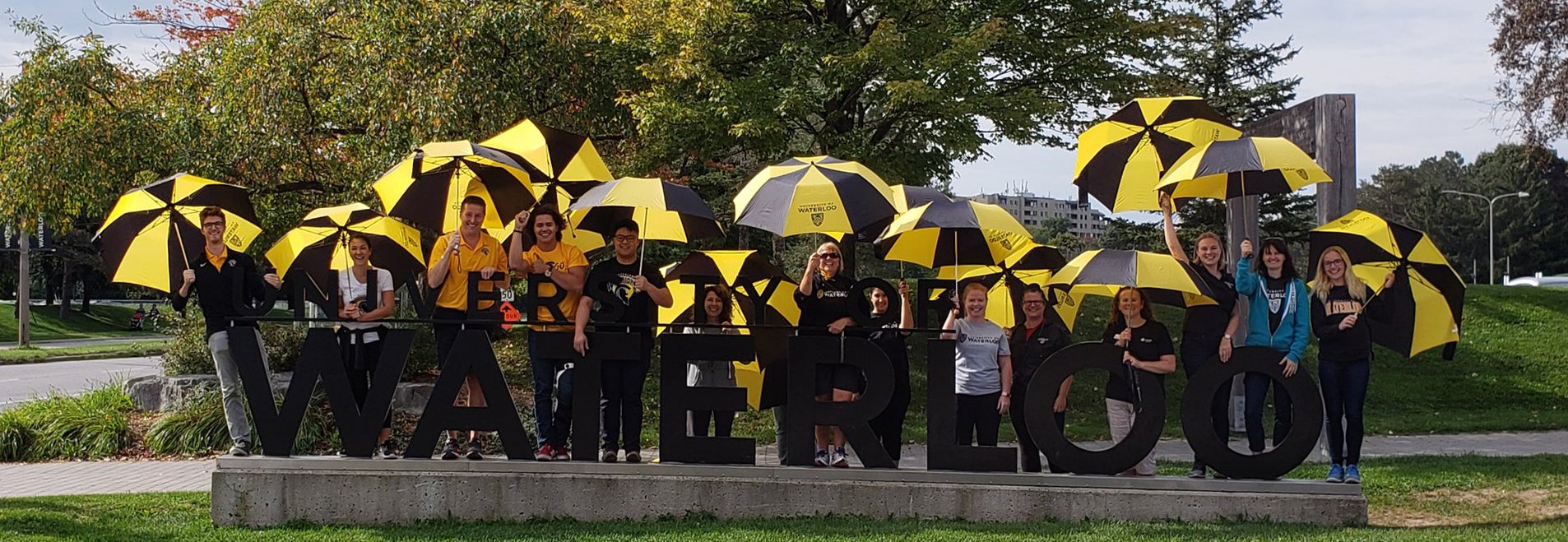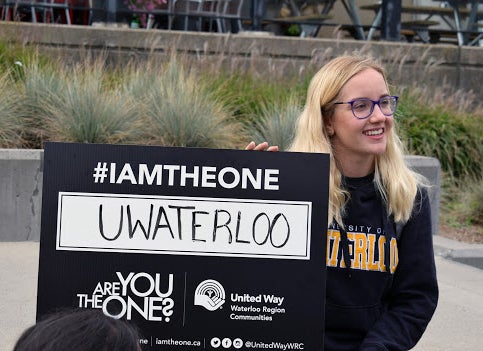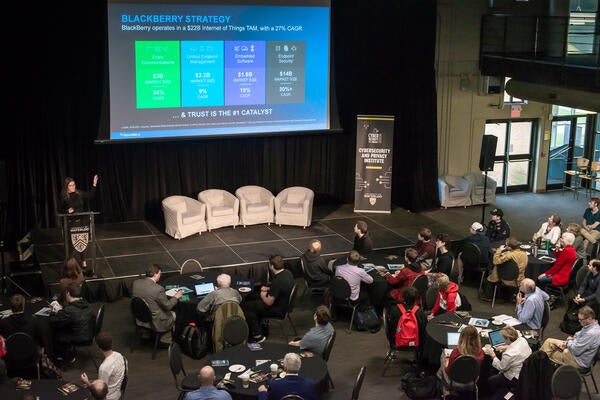
Waterloo donations come full circle to help alumni and staff member
When donating to Waterloo’s United Way campaign, you’re often helping people closer than you think

When donating to Waterloo’s United Way campaign, you’re often helping people closer than you think
By Natalie Quinlan University RelationsLandon Jennings was 14-years-old when her life changed forever.
A freshman in high school, the then grade 9 student had to recount experiences she never wanted to think about again.
“I remember being called out of class to the principal’s office,” says Jennings. “Someone close to me slowly became a monster in front of my eyes as I was forced to replay images I tried to forget.”
In an impact speech, shared with hundreds of people throughout the Waterloo region, the now 25-year-old Waterloo alumni and staff member recalled some of her darkest days, hoping to shine a light on organizations that came to her aid—organizations like United Way.
“When I was 14, I became a child witness, which means I was put in a difficult situation as a child and needed to act as a witness in court,” says Jennings. “I was put in contact with an organization called the Child Witness Centre who specifically help children and youth navigate the court process. That’s kind of where my involvement with the United Way started for me because the United Way provides significant funding to the Child Witness Centre every year.”

Landon Jennings (left) leads the 2018 Deans March to raise awareness for the University's United Way Campaign.
Because of the funding received through the United Way, minors like Jennings didn’t have to go through the judicial system alone. Paired with a case worker, young Jennings was provided support to prepare for trial.

Landon Jennings (right) pictured during 2018 United Way "March of 1,000 Umbrellas" walk.
“After that, I wanted to give back,” says Jennings. “I always thought that if I could overcome the negative experience that I went through in my life, that then [maybe] I could one day share my story to help others in a positive way.”
As fate would have it, Jennings was hired as a co-op student for the University of Waterloo’s United Way Campaign during her master’s in 2018. Working as a campaign coordinator, Jennings was responsible for helping run United Way initiatives on-campus that ultimately supported the United Way Waterloo Region Communities. The relationship between the two brewed opportunities she hadn’t anticipated before taking on each venture separately. Alongside her campaign coordinator position, Jennings found herself also volunteering as an Impact Speaker, jointly representing the United Way and the University of Waterloo by sharing her story at various engagements around the city.
“The United Way committee had no idea about my past, so they were shocked when I shared my experience with them,” says Jennings. “But it was like a deja-vu moment where I thought ‘oh my gosh, this was supposed to happen.’ I was meant to be in this role.”

“People don’t really realize that by donating through the University to the United Way campaign, they can still be helping many students, staff, faculty. I mean, I’m just one example,” says Jennings. “The University of Waterloo plays an important role in running their campaign because we’re one of [United Way’s] biggest supporters.”
During the month of October, the University of Waterloo’s United Way campaign will again try to meet, and go beyond, their goal of $250,000. Donations can be made as a student, employee or retiree, or at various United Way events happening around campus.
And if you’re still hesitating about making a donation, just remember Jennings’ story.

Read more
New framework aims to avoid unintentional consequences of technology

Read more
Cybersecurity and Privacy Institute hosts their annual conference

Read more
Campus HeForShe #GetFreeTour kick-off outlines how smashing gender inequity begins on campus
The University of Waterloo acknowledges that much of our work takes place on the traditional territory of the Neutral, Anishinaabeg, and Haudenosaunee peoples. Our main campus is situated on the Haldimand Tract, the land granted to the Six Nations that includes six miles on each side of the Grand River. Our active work toward reconciliation takes place across our campuses through research, learning, teaching, and community building, and is co-ordinated within the Office of Indigenous Relations.